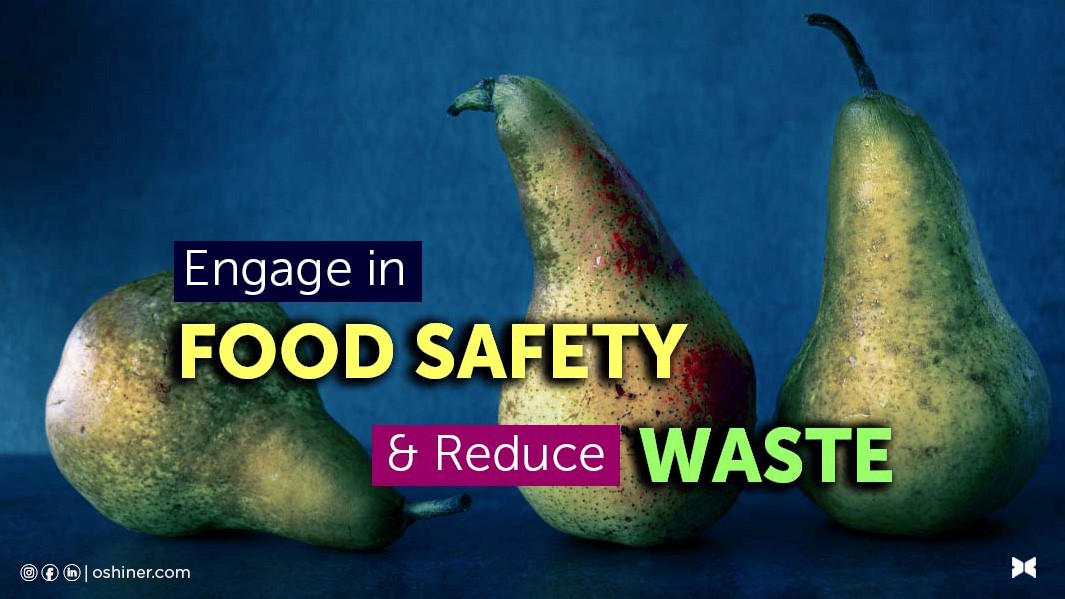Every day, tons of food go to waste worldwide and a significant portion of it, is still perfectly edible. It is estimated that almost a third of the world production is lost or wasted every year. You might think that it does not affect you and that there is little to nothing you can do about it, but the truth is food wastage affects you directly. In all this, you also have an important role to play to stop it.
Did you know when food is discarded, it is sent to landfills where it rots and generates both greenhouse gases (such as methane which contributes to climate change) and leachate which infiltrates soil and water sources and is responsible for safety and health hazards?
Wasting food wastes the resources that went into producing that food, from the water, seeds, feeds to labor, effort, energy, and investment. This problem finds it roots at each step of the journey of the food that ends up on your plate, and even after, if it is thrown away. In fact, the responsibility is shared at three different levels: farmer level, retail/business level and consumer level. More specifically, food gets spoilt during harvesting, processing, transportation, storage in warehouses and supermarkets… and when stored for too long in our homes. And between 20 to 40% of fruits and vegetables are disposed off when marked, discolored, or oddly shaped and sized because they do not meet the standards of the marketplace.

Reducing food loss and waste is essential for a sustainable future of the planet and every action counts. At an individual level, there are simple things we can all do to reduce the quantity of food that goes to waste in our homes.
– Starting with planning weekly meals, you will save money and time and eat healthier food. By doing so, you will stop buying food on impulse at the grocery store and only get what is necessary for a week.
– Secondly, note upcoming expiration dates on foods you already have at home, and plan meals around the products that are closest to their expiration.
– Thirdly, store foods the right way, put perishable foods in the refrigerator or freezer as soon as you get home from shopping, and store all unopened non-perishable products in a clean, dry place at room temperature.
– Fourthly, buy funny-looking fruits and vegetables, do not discriminate against “ugly” fruits and veggies.
– Lastly, shop from your refrigerator first! Cook and eat what you already have at home before buying more.
Engaging in food safety and preservation has a big role to play in solving the food waste problem. And one attractive alternative to resolving the issue is the use of ozone technology for food preservation. In fact, ozone is already applied in the food industry in developed countries, as a sterilizer for food and as been granted with the status of “Generally Recognized As Safe” (GRAS) as a sanitizer and disinfectant for foods by the FDA.
Ozone application for food preservation is considered a safer and greener alternative than traditional technologies, mostly because ozone application is non residual and does not affect the taste or smell of food products. Ozone is often spread on fruits and vegetables to prolong their life and reduce their wastage, but it is also applicable on red meat, poultry, seafood, dairy, spices, nuts, and frozen foods.
Ozone can also be used by households to preserve and safely stored their food. With Oshiner Fridge Freshener, you can now prolong the lifespan of the food you store in the fridge.

With Oshiner Ozone Fridge Freshner, you can keep your food two times longer through the preservation power of ozone. With its oxidation and elimination of bacteria and viruses, ozone preserves your food fresh longer while killing off the germs present in your fridge. Keeping your fridge sterilized and your food fresh and free from bacteria, avoiding unnecessary food waste.
Play your part in stopping food waste by patterning with Oshiner.

